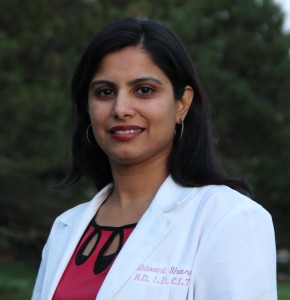September is Healthy Aging Month! Aging is a natural process that happens to everyone. It starts at conception and ends with our last breath. Although we have no control over how long we are going to live, we certainly have control over how well we live as we age.We can enhance the quality of our life as we age by making the right choices.
Proper nutrition can enhance the quality of our life. Three pillars of nutrition – balance, variety and moderation can provide good nutrition and make our meals more enjoyable. Our cells, tissues, brain and entire body depends on good nutrition to survive and function optimally. Eating a well balanced diet provides energy and also helps us to stay away from many illnesses. In this article we will discuss a few important things we can do to achieve good health as we age.
Annual Health Check-up: Start with a good baseline. Get your physical health check-up done every year. Most insurance companies cover yearly physical check-ups. We pay a lot of money towards our health insurance but never use it to its fullest benefit until we are sick. According to the NIH (National Institute of Health) every adult should visit a health care provider every year even if they are healthy. Yearly physical exams are used to screen for any current medical condition, assess our risk of any future medical condition, encourages us to follow a healthy lifestyle, update any necessary vaccinations and helps us to build a relationship with our health care provider. A simple blood test done during annual physical check-up can detect high blood sugars or high cholesterol levels. This alone can give us early indicators and be a guiding factor on how healthy we age. Diabetes, hypertension, and high cholesterol can easily be treated with diet and exercise if detected early.
 Maintain Healthy Body Weight: We don’t put on several pounds in a day, it’s a progression that we can see by weighing ourselves regularly or by our dress or pant size. If we notice our clothes fitting tighter, it’s not just the big dinner we ate last night. Many health problems can be resolved just by maintaining a healthy body weight. If we are overweight, let’s get to work and lose those extra pounds. Professional help goes a long way in taking off that extra weight and, more importantly, keeping it off. Having a healthy body weight can play a major role in keeping us away from having weight related health issues. According to the CDC(Center for Disease Control and Prevention) people who are obese are at an increased risk of several health conditions like Type II diabetes, hypertension, coronary heart disease, sleep apnea, osteoarthritis, body aches and pains and are more likely to have a lesser quality of life.
Maintain Healthy Body Weight: We don’t put on several pounds in a day, it’s a progression that we can see by weighing ourselves regularly or by our dress or pant size. If we notice our clothes fitting tighter, it’s not just the big dinner we ate last night. Many health problems can be resolved just by maintaining a healthy body weight. If we are overweight, let’s get to work and lose those extra pounds. Professional help goes a long way in taking off that extra weight and, more importantly, keeping it off. Having a healthy body weight can play a major role in keeping us away from having weight related health issues. According to the CDC(Center for Disease Control and Prevention) people who are obese are at an increased risk of several health conditions like Type II diabetes, hypertension, coronary heart disease, sleep apnea, osteoarthritis, body aches and pains and are more likely to have a lesser quality of life.
Portion Control: Eat smaller meals.As we age, our digestion slows down and we may not be able to digest the amount of food that we used to eat in our not too distant past. It is important to have small frequent meals throughout the day. This helps to maintain energy levels throughout the day, and is easier on our digestive system.
 Plant Power Nutrition: Bring on those fruits and vegetables! Our body continuously produces free radicals. Free radicals are molecules that cause oxidative damage to our cells. Fruits and vegetables are packed with antioxidants and phytonutrients that reduce cell damage. We should attempt to eat all different colors of fruits and vegetables every day. Fruits like kiwi, strawberries, blueberries and oranges are loaded with vitamin C that help boost our immune system. Green leafy vegetables, carrots, and sweet potatoes are rich in vitamin A (beta- carotene) that is great for our vision. Vegetables like kale, spinach, broccoli, collard greens and turnip greens are rich in antioxidants like lutein that also support vision health. Banana, apricots, and potatoes are rich in potassium that help regulate blood pressure. Fresh vegetable juicing is a great way to power pack our day with a good dose of antioxidants and phytonutrients. Beans and legumes such as black beans, garbanzo beans, kidney beans and lentils are a great source of protein, fiber and complex carbohydrates without adding saturated fat.
Plant Power Nutrition: Bring on those fruits and vegetables! Our body continuously produces free radicals. Free radicals are molecules that cause oxidative damage to our cells. Fruits and vegetables are packed with antioxidants and phytonutrients that reduce cell damage. We should attempt to eat all different colors of fruits and vegetables every day. Fruits like kiwi, strawberries, blueberries and oranges are loaded with vitamin C that help boost our immune system. Green leafy vegetables, carrots, and sweet potatoes are rich in vitamin A (beta- carotene) that is great for our vision. Vegetables like kale, spinach, broccoli, collard greens and turnip greens are rich in antioxidants like lutein that also support vision health. Banana, apricots, and potatoes are rich in potassium that help regulate blood pressure. Fresh vegetable juicing is a great way to power pack our day with a good dose of antioxidants and phytonutrients. Beans and legumes such as black beans, garbanzo beans, kidney beans and lentils are a great source of protein, fiber and complex carbohydrates without adding saturated fat.
Heart Healthy Fats: Focus on including healthy fats every day and cut down on saturated fats. All fats are not bad. We need some good fats for the proper absorption of Vitamin A, D, E and K. Good fats also protect organs like our kidneys, heart and liver, balance hormone and insulates the body from environmental temperature changes, thereby preserving body heat. Healthy fats like omega 3 fatty acids from nuts and seeds (flax seeds, chia seeds)are great for brain function,good for the heart, and help joint mobilization. Walnuts and almonds not only contain heart healthy fats, but also contain lots of vitamins and minerals like vitamin E, vitamin B, biotin, copper and manganese. Vitamin E and biotin are great for our hair and skin. Let’s make a goal to get a handful of these power nuts every day. Of course not if you are allergic to nuts. Avocados and olive oil are another rich source of monounsaturated fats that support good health. Both can be a part of a healthy salad every day. Homemade guacamole or an avocado banana smoothie can be a great way to get a good serving of those heart healthy fats. Consuming freshly ground flax seeds (1 tbsp/day) can provide a good amount of omega 3 fatty acid.
Bone Health: As we age (especially women) we lose more calcium from our bones. We need to make sure that our diet provides a good amount of calcium everyday. Focus on having at least three servings of milk or milk products everyday. It could be plain low fat milk with breakfast, a cup of yogurt or cottage cheese with fruits, or a cheese stick with carrots and crackers. If someone is lactose intolerant they can get lactose freemilk, soymilk or other milks that are fortified with calcium, like almond milk, rice milk or coconut milk. Some fruit juices, like orange juice and apple juice, are also fortified with calcium and vitamin D. Certain vegetables like turnip greens, kale and broccoli also contain calcium. Be watchful of the high protein and high sodium diets since they can reduce the absorption of calcium. It’s a good idea to keep our diets low in sodium and animal protein.
Supplement it! Don’t shy away from supplements. Supplements can provide what we may be lacking in our diet. This does not mean that we should stop eating healthy. But certain nutritional deficiencies can be easily corrected by taking supplements. Vitamin D deficiency has recently gained attention and has shown to be responsible for many health conditions including many auto immune disorders, depression and bone health. Taking a vitamin D supplement is extremely important especially if one lives in colder regions where they hardly get to see the sun. According to Vitamin D council, 5000IU of vitamin D3 per day is suggested as a safe dosage for adults. We should talk to our primary care physician and get our vitamin D levels checked during our yearly checkup.
Probiotics: Probiotics are live microorganisms that are beneficial to health. These good bacteria help to keep a good gut and help to boost our immunity. Most of us have colonies of these good and bad bacteria in our gut. However as we age and take more antibiotics, these good bacteria deplete and this adversely effects the natural ecosystem of our body. Taking a probiotic supplement may help to keep our gut in a good condition.These good bacteria are naturally present in yogurt, kefir, cheeses, and fermented foods like kim chi, sauerkraut and dill pickles. Probiotics are especially beneficial for any gastrointestinal disorders.
Vitamin B12: As we age, our body’s ability to absorb many nutrients decreases. Vitamin B12 is an important nutrientthat has a key role in providing energy. It is always good to get vitamin B12 levels checked as a part of your annual physical. Low B12 levels are responsible for chronic fatigue and tiredness. Vitamin B12 deficiency is very commonly seen in people who follow vegetarian/vegan diets. If low, your physician may recommend supplements or vitamin B12 shots.
All these are general guidelines. Please check with a Registered Dietitian to have a personalized nutrition recommendation.
 Shivani Sharma is a Registered Dietitian, Author, Health & Wellness Coach and Owner of Right Food Choice LLC. She is currently in private practice with over 15 years of experience in nutrition education and counseling. Shivani specializes in diabetes, chronic kidney disease, gastrointestinal disorders, weight management, autoimmune disorders such as rheumatoid arthritis, IBS, migraine fibromyalgia, chronic fatigue and more.
Shivani Sharma is a Registered Dietitian, Author, Health & Wellness Coach and Owner of Right Food Choice LLC. She is currently in private practice with over 15 years of experience in nutrition education and counseling. Shivani specializes in diabetes, chronic kidney disease, gastrointestinal disorders, weight management, autoimmune disorders such as rheumatoid arthritis, IBS, migraine fibromyalgia, chronic fatigue and more.
Shivani is an Active Member of Academy of Nutrition and Dietetics. She has been in the news and media recently for her accomplishments. She was recently featured on Detroit FOX news, Macomb Daily Newspaper and Troy Somerset Gazette. She  was also interviewed by award winning journalist author and community activist Vanessa Denha for her show on 96.3 and 93.1 FM. Shivani has also been a guest speaker for almost two years for a popular radio station (FunAsia Radio – Dallas, TX). Shivani has presented numerous seminars and presentations in both health & wellness and workplace capacities. Shivani did her bachelor’s degree in science with a major in Psychology. After that she pursued her career further at Wayne State University in Michigan to become a Registered Dietitian.
was also interviewed by award winning journalist author and community activist Vanessa Denha for her show on 96.3 and 93.1 FM. Shivani has also been a guest speaker for almost two years for a popular radio station (FunAsia Radio – Dallas, TX). Shivani has presented numerous seminars and presentations in both health & wellness and workplace capacities. Shivani did her bachelor’s degree in science with a major in Psychology. After that she pursued her career further at Wayne State University in Michigan to become a Registered Dietitian.
